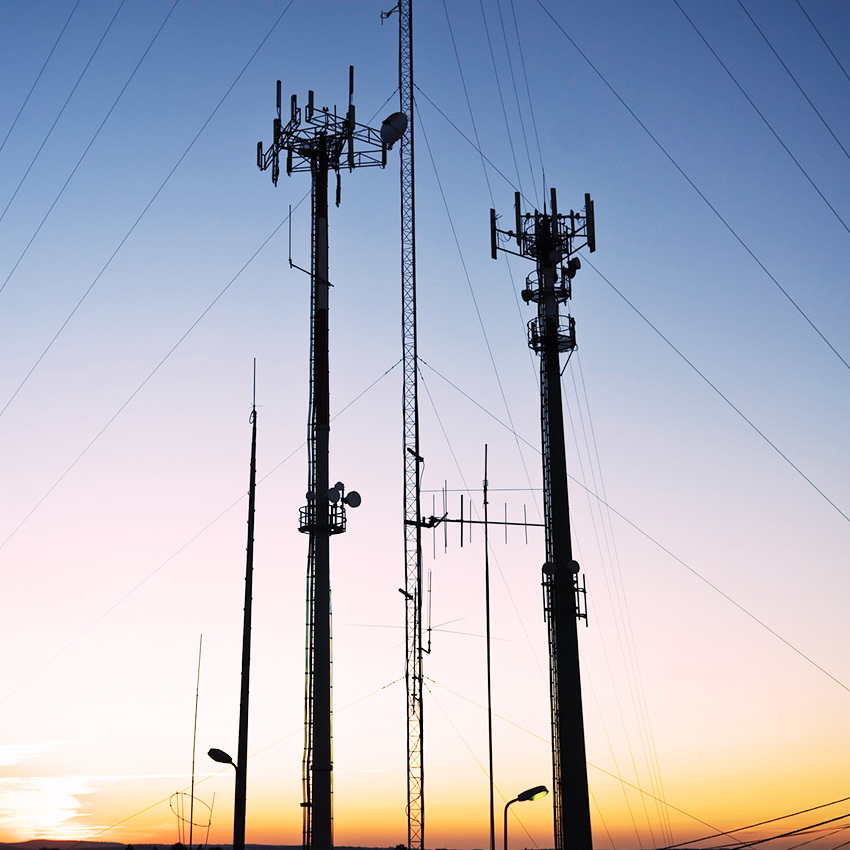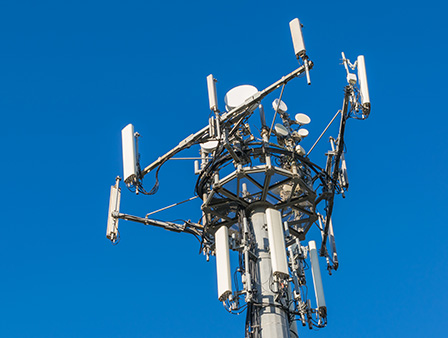Cell Tower Lease Rates Explained
 A cell tower lease is an agreement between a property owner and a telecommunications provider such as AT&T, Verizon, or T-Mobile, granting the provider the right to install and operate cellular equipment on the property. In return, the property owner receives monthly rental payments over the term of the lease. Cell towers on private property have become critical in expanding network capacity, particularly as the demand for faster data speeds and improved connectivity continues to rise, especially with the ongoing deployment of 5G.As telecommunications companies race to upgrade their networks and meet the exploding demand for mobile data, securing prime locations for cell towers has never been more important. Property owners with valuable land in underserved or high-demand areas may be in an excellent position to benefit from this trend.Key Factors Influencing Cell Tower Lease Rates:
A cell tower lease is an agreement between a property owner and a telecommunications provider such as AT&T, Verizon, or T-Mobile, granting the provider the right to install and operate cellular equipment on the property. In return, the property owner receives monthly rental payments over the term of the lease. Cell towers on private property have become critical in expanding network capacity, particularly as the demand for faster data speeds and improved connectivity continues to rise, especially with the ongoing deployment of 5G.As telecommunications companies race to upgrade their networks and meet the exploding demand for mobile data, securing prime locations for cell towers has never been more important. Property owners with valuable land in underserved or high-demand areas may be in an excellent position to benefit from this trend.Key Factors Influencing Cell Tower Lease Rates:- Type of Cell Tower Lease: Different types of cellular leases—ranging from rooftop agreements to ground leases—yield varying rental rates. For example, ground leases for traditional macro towers generally offer higher returns than rooftop agreements, but both types have value depending on the needs of the carrier and the specifics of the location.
- Geographic Area of Service: Location is everything when it comes to cell tower leases. If your property is in an area with limited alternative sites for cellular expansion, the value of your tower lease increases substantially. High-demand urban centers, suburban zones, and rural areas with coverage gaps are particularly attractive for telecom providers.
- Available Alternatives and Technological Trends: Advances in wireless technologies, such as small cell infrastructure and Distributed Antenna Systems (DAS), can impact the demand for traditional cell towers. As providers continue to roll out 5G, they are looking at a mix of macro towers, small cells, and fiber to fill gaps in their networks. If a carrier can deploy small cell infrastructure or DAS instead of building a new tower, the value of existing tower leases could diminish.
- Contract Terms and Lease Structure: The details of your lease agreement—such as rent escalation clauses, lease length, and renewal terms—also play a big role in determining the value of your lease. Favorable terms for the property owner, like annual rent increases, can make your lease more valuable, whereas less favorable terms could limit long-term profitability.
- 5G Expansion and Network Densification: The rollout of 5G is driving a major wave of network densification. While traditional macro towers will continue to play a key role, the expansion of small cells and other infrastructure to boost coverage in high-traffic areas is becoming increasingly common. Property owners in both urban and suburban markets may see new opportunities for leases as carriers work to eliminate coverage gaps.
- Carrier Consolidation and Lease Termination Risk: While demand for connectivity is growing, consolidation within the telecom industry and technological advancements pose risks to property owners. When carriers merge or optimize their networks, they may terminate leases if a tower site becomes redundant. For property owners, this means that relying solely on long-term rental payments can carry significant financial risk. Selling your lease for a lump sum allows you to capture its full value now while minimizing the risk of future lease termination or renegotiation.
- Increasing Pressure to Maximize Profitability: Telecom providers are constantly reassessing the cost-benefit ratio of their infrastructure investments. As a result, they may be incentivized to renegotiate or terminate existing leases if they can reduce costs by consolidating services onto fewer towers. Property owners should be aware of these trends and consider how their lease could be impacted by such shifts.
- Eliminate the Risk of Lease Termination: As mentioned, carriers may choose to terminate or renegotiate leases as they consolidate their networks, deploy new technologies, or merge with other companies. By selling your lease, you can avoid the uncertainty of a potential termination and capture the full value of the lease today.
- Capitalize on Current Market Demand: The demand for cellular infrastructure is at an all-time high, driven by the 5G rollout and consumer demand for faster, more reliable data. By selling your lease now, you can take advantage of these favorable market conditions and secure a lump sum that reflects the present value of your lease.
- Unlock Financial Flexibility: A lease buyout allows you to unlock the value of your cell tower lease all at once, providing you with capital that can be reinvested in other ventures, used to purchase additional real estate, or put toward retirement. The financial flexibility provided by a lump-sum payment can be a significant advantage over waiting for incremental rental payments that may be subject to future risks.
Get in touch
Interested in learning more? Click below to start the conversation.
Select your area of interest
Landmark Dividend
866-526-3675
400 Continental Boulevard
Suite 500
El Segundo, CA 90245





